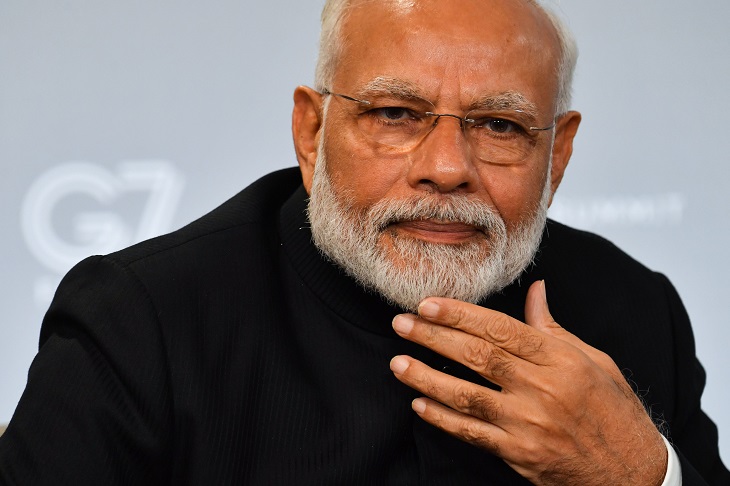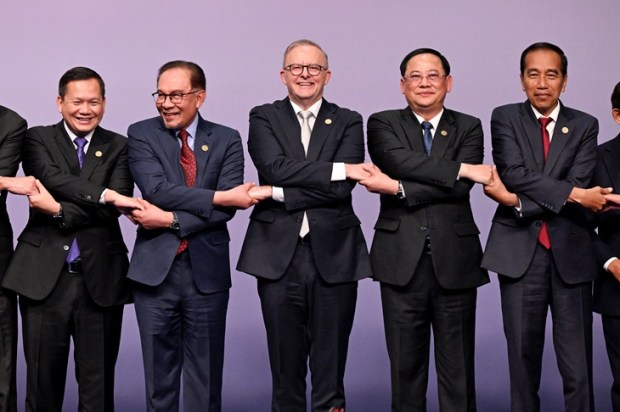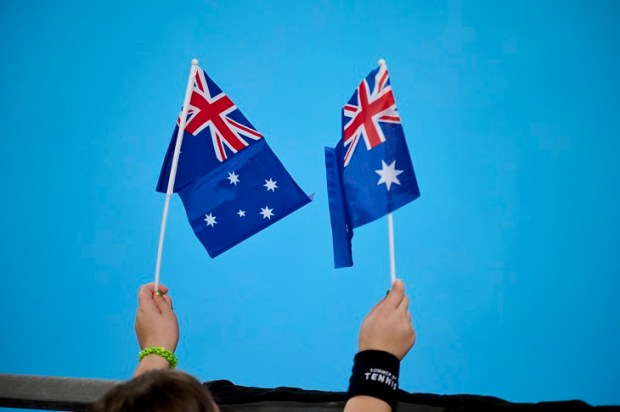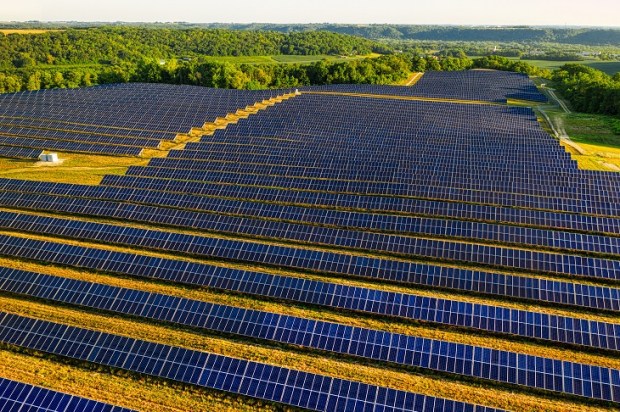If things go wrong in the Pacific, which is possible given Beijing’s plan to station military personnel in the Solomon Islands, Australia will require an ironclad alliance of friends to defend its territorial waters.
Pacific Islands’ geography presents a nightmare for invading forces – which is why Xi Jinping has done everything possible to buy his ocean empire with a system of debt-trap down payments. Taiwan’s refusal to sell itself has given the world a glance at its hand of cards.
Only a liar or idiot maintains that China’s ambitions are peaceful. If Australia is to be ghosted by its friends in a Pacific conflict, it needs to know who the no-shows are in advance so it can replace them with guaranteed mates.
Plenty of Australian politicians believe that India’s support against China is guaranteed. Pencilling-in Indian warships is a big call. Not only is India caged by China’s brutal system of water blackmail and the casual arming of India’s crazy neighbours, China is Russia’s bosom-buddy – which matters, because India has a long relationship with Russia that it wants to keep.
We can assume that India’s public comments toward Russia hint at future actions in regard to China.
Early on, India took a neutral status over Russia’s war against Ukraine. In a political mess where Europe and the West have actively defended Ukraine through passive and tactile measures, neutrality is closer to an act of support. This assumption of India’s support was partly confirmed over the past week in a series of statements, agreements, and negotiations between India and Russia.
India has abstained from all United Nations votes that concern Ukraine, including the United Nations Security Council (UNSC) resolution that condemned Russian aggression – although India did comment that national sovereignty should be respected. China and the UAE also abstained.
‘India is deeply disturbed by the recent turn of developments in Ukraine. We urge that all efforts are made for the immediate cessation of violence and hostilities. No solution can ever be arrived at, at the cost of human lives,’ said Tirumurti, India’s permanent UN representative.
President Ram Nath Kovind reiterated on April 3, 2022 that India’s political position on the Russia-Ukraine conflict has been ‘stable and consistent’ with continued calls for ‘violence to be replaced with diplomacy’.
‘We are deeply concerned about the deteriorating humanitarian situation and call for an immediate end to violence and a return to the path of dialogue and diplomacy,’ said Kovind. He also reminded the world that India is providing non-lethal humanitarian aid to Ukraine.
Prime Minister Modi’s comments are more concerning. ‘The recent developments in Europe have raised questions about the stability of the international order. In this context, it has become a greater priority to have regional cooperation.’
The comments were made to the Bay of Bengal Initiative for Multi-Sectoral Technical and Economic Cooperation (BIMSTEC) summit chaired by Sri Lanka – a country famous for allowing its Hambantota deepwater port to be debt-trapped by China who built it for an impossible price, resulting in a 99-year lease and forfeiture of land.
Politics in this region is complicated, with India reviving the limited power of BIMSTEC to recover some of its influence in direct opposition to China’s dominant Belt and Road Initiative, which has shifted the balance of power, leaving India’s Asian alliances critically weakened.
However, it should be noted that India has long been side-eyed as a peculiar member of the vastly more powerful and dangerous Shanghai Cooperation Organisation – a rival diplomatic organisation to the United Nations run by communists, religious zealots, and dictators. Its eight permanent member states are China, India, Kazakhstan, Kyrgyzstan, Pakistan, Russia, Tajikistan, and Uzbekistan with the four observer states of Afghanistan, Belarus, Iran, and Mongolia.
This is not an equal partnership, with the bureaucracy viewed as China and Russia’s joint system of control specifically created to nullify the diplomatic power of the United Nations and cement a rival world order led by China. It was thought that India might have joined to keep an eye on its most dangerous geopolitical threat – a ‘better in than out’ scenario – but Modi’s recent speech could be taken as confirmation of whispers that India will support a geopolitical shift against the United States – militarily and financially – if it cuts a security deal with China and Russia.
Sri Lanka is essential to the safety of Pacific shipping routes, and yet it is experiencing the worst economic crisis in modern history, largely caused by its decision to embrace organic farming. It owes a fortune in aid debt, needs to urgently import fertiliser to grow food (which it can’t do because war in Ukraine has created a shortage), Covid has destroyed its tourist market, oil is at a critical low, inflation is at 15 per cent, and school children have been sent home because schools can’t afford to import paper to print their exams. India has attempted to capitalise on Sri Lanka’s woes with infrastructure projects and loans, but China has a seemingly endless supply of cash.
The situation was summed up perfectly by Head of the Observer Research Foundation in Chennai, Sathiya Moorthy. ‘Sri Lanka needs China [and Russia] at the UN where they have a veto [unlike India] which they are ready to use without reference to human rights issues in Sri Lanka, also Sri Lanka cannot wish away China and whatever debt they owe Beijing.’
The overall view of the region’s political alliances indicates that the majority of nations will accept a China-led rule for the sake of domestic peace, even if it means living as vassal states to their communist neighbour. Many don’t have a choice, having already made fatal mistakes that sent them into China’s web.
There is a big caveat to this. An unknown number of Asian nations would welcome a strong America to free them of Chinese debt, water blackmail, and Beijing’s invasive politics. Were the United States to present itself as a protective force once more, China would find itself with a nest of vipers at its feet.
India is a member of the Quadrilateral Security Dialogue alongside Australia, the United States, and Japan (the latter has been in competition with India, rapidly losing ground with its investment attempts), and if there is any truth to this suspicion about India’s stance on a new world order, it has enormous consequences for the security of Australian interests in the Pacific.
Russia has praised India for not judging the war in Ukraine in a ‘one-sided way’. Is India persuaded by Russia’s official line that it’s ‘de-Nazifying Ukraine’? Putin doesn’t even believe it.
Regardless, India relies on Russian military hardware to arm itself against China, which continues to agitate along its North-Eastern borders while arming its aggressive neighbours, some of whom have nuclear weapons and a religious obsession with bringing on the ‘end times’.
Sergey Lavrov, Russia’s Foreign Minister, spent time in India last week conducting talks with Modi – who ‘couldn’t find time’ for his British and Chinese equivalents. This is the same Lavrov who had the gall to declare, ‘Friendship is the keyword to describe the history of our relations [Russia and Ukraine], and our relations were very sustainable during many difficult times in the past.’ He spoke these words as Russian bombs were busy reducing Ukraine’s cities to ruin and reports surfaced of hundreds of civilians being bound and executed.
The result of his meeting with Modi was a consolidation of the planned rupee-rouble mechanism that allows Russia to use India as a way around the West’s sanctions. In exchange, India gets cheap oil, food, and weapons – a tempting offer for a poor nation with over a billion people and constant civil uprisings.
‘We will be ready to supply to India any goods which India wants to buy … and I have no doubt that a way will be found to bypass the artificial impediments which illegal unilateral sanctions by the West create,’ said Lavrov.
In agreeing to this, India is neither neutral nor passive.
The United States compounded the situation by pressing India on the issue of sanctions. Instead of competing against Russia with a desirable alternative, America insisted that India inflict economic suffering on its people. It’s a very foolish adviser that tells President Biden to openly threaten India over its importation of Russian oil when nearly all of Europe is dependent. It’s no secret that America seeks to make a profit off Russia’s fall from grace, but playing around with India’s friendship at this crucial time is a catastrophic strategy that has torn holes in the relationship for everyone – including Australia.
Almost nothing that has happened during the last six weeks in Ukraine has anything to do with Ukraine. Lavrov admitted as much, stating that it was not just about Ukraine and its neutrality in play, ‘but rather a question of world order’. China and Russia came to an agreement to permanently shift global power into their collective hands with Putin sitting at the right hand of god. Xi Jinping said, ‘You first…’ and Putin jumped. Given this, the solution will not be about Ukraine – it will concern the entire geopolitical order, creating the backbone of alliances set to dominate the next global war.
Unlike Western politicians, Modi is not an idiot. His political career has been forged in the crucible of Asian politics where he faces more critical incidents in an hour than Australian leaders see in a lifetime. He will cut whatever deal is necessary to stop his people from starving and fighting each other – who those deals are made with depends entirely on which global players prove themselves to be strong, smart, reliable, and prepared to let Modi maintain his flexible regional deals.
If America has no power to assist India with the region – America will be discarded. As for Australia, we’ll have to make like the cat in Shrek, staring up at India with oversized, loving eyes and hope that we’re adopted rather than kicked out on the street. (No thanks to the Greens for practically running India out of Queensland with pitchforks.)
Australian politicians are relying on India’s military strength. India is the fourth largest overall military superpower and presents the Pacific with a chasm to fill if it decides upon ‘neutrality’.
Would India confront China in battle? Probably. Would India fight Russia? Only if Russia keeps meddling in Pakistan and Kashmir to the point of crisis. Now the real question, would India abstain from facing China in the Pacific if Russia asked it to…?
It’s not only the answer that’s important, it’s whether or not Australian politicians know to ask it.
Got something to add? Join the discussion and comment below.
Get 10 issues for just $10
Subscribe to The Spectator Australia today for the next 10 magazine issues, plus full online access, for just $10.

























Comments
Don't miss out
Join the conversation with other Spectator Australia readers. Subscribe to leave a comment.
SUBSCRIBEAlready a subscriber? Log in